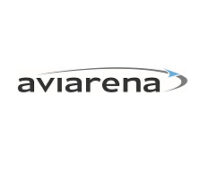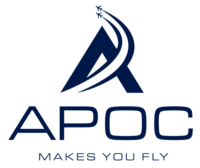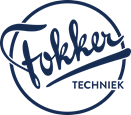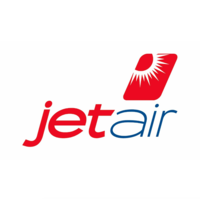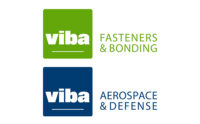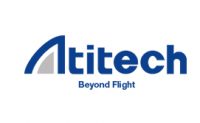Electrostatic Discharge (ESD)
This course is intended to be useful for individuals which handle aircraft parts susceptible to damage from Electro Static Discharge (ESD). The course is meant to provide help and guidance on how to prevent that such persons accidentally damaging ESD sensitive parts during maintenance, handling, inspecting, storing, receiving or shipping operations.
Course information
Course Description:
The course is created with the intention to introduce individuals involved in the assembly, repair and testing of electrical components to Electrostatic Discharge (ESD). The course is intended for technical staff involved in maintenance and inspection activities on ESD sensitive components which requires ESD awareness. Training slides are followed up with question slides. These question slides are included in the training to test your knowledge, skills and attitude towards EWIS. At the end of the course you will receive a final examination. For both you need to pass with a score of 75% or more.
Course Objectives:
The course objective should be stated clearly so that they can related to the expected learning outcomes in each section or module of the course and to the goals of the overall assessment process.
Learning objectives:
By the end of this course, you will be able to handle Electrostatic Discharge Sensitive equipment appropriately and you are able to effectively manage Electrostatic Discharge Sensitive components and devices in an Aircraft technical Environment.
Regulatory requirement compliance:
This course is developed with NEN-EN-IEC 61340-5 section 1 and 2 as reference.
Prerequisites:
A background in an aviation environment is an advantage although not essential.
Course Topics
This course has been divided in 4 major parts, all covering different content.
Part 1: Static Electricity Fundamentals
- What Static Electricity is
- How Static Electricity is generated
- What Electro Static Discharge is
- The effects of Electro Static Discharge
- Conductors, Insulators and Static dissipative materials
- The behaviour of static electricity on conductors and insulators
Part 2 Electrostatic Discharge
- The definition of ESD
- Occurance of ESD
- The result of uncontrolled ESD
- Control of ESD
- Components in aviation that are ESD sensitive and how to recognize them
Part 3: ESD Standards
- Relevant regulations on ESD programs to the aviation industry
- Relevant ESD (industry) standards to ESD sensitive equipment
- Who uses ESD standards
- Why to use ESD standards
Part 4: Strategies for ESD Prevention
- ESD prevention strategies:
- with the individual
- on the aircraft
- on the workbench
- throughout the facility
- for storage and handling
- for transportation
- related to marking
Course Duration:
1 day (starting at 09:00 and ending at approximately 16:00)
Materials used
Required Materials:
Please download the ASA Best Practice Handling of ESD Sensitive Parts for Distributors (download here).
Supplemental Materials:
Bring along a notebook and pen if you require to make writen notes.
Hardware and Software requirements
Hardware requirements:
A reliable computer with internet connection is necessary to complete the online training.
Software requirements:
Software deemed necessary perform the online training.
Browser information:
A reliable computer with internet connection are necessary to complete the online training.
Instructor information
Instructor credentials:
Mr. Danny Goergen has over 10 years of experience in the aviation industry. After several years working as an aircraft mechanic, he graduated as Bachelor in Aviation Engineering and started as a process engineer in an EASA Part 145 approved component repair shop.
Within this organisation he had two EASA Form 4 positions as Technical Manager and Quality Assurance Manager. In this last position he developed himself as an internal trainer, providing training in EASA/FAA/CAAC Part 145 regulations, Human Factors and Company Processes an Procedures.
While working for this organization as a Quality Assurance Manager and qualified Human Factors trainer, he had the ambition to consult, support and provide training not only for his employer, but also to offer these services to other organizations in the aviation industry.
In October 2009, Danny Goergen founded Holland Aviation Consultancy & Engineering (HACE).
Besides providing consultancy and training services to the aviation industry, on behalf of HACE, he also founded an online training platform, that facilitates the several HACE online training courses, such as Human Factors, EWIS target group 1-6 and Fuel Tank Safety Training.
At the moment Mr. Danny Goergen is, on behalf of HACE, contracted in several interim quality management positions. Two of his clients are Part 147 approved Aviation Competence Centre (ACC, AMC66), where he holds the EASA form 4 position of Quality Assurance Manager. Besides managing the Part 147 quality system, he is also responsible for training their staff in EASA Part 66-147 regulations awareness and MTOE procedures.
Contact information:
Mr. Danny Goergen can be contacted via e-mail (danny.goergen@hace.aero)
Assessment and grading
Testing procedure:
Students will perform an (online) examination with Multiple-choice questions. A laptop or tablet with WiFi internet connection is needed to complete this examination.
Grading procedure:
This examination needs to be passed with a minimum passrate of 75% in order to receive a certificate of course completion.
Assignments and Participation
Assignments and Projects:
Optional
Class Participation:
Students must communicate with other Students in the chatroom.
Students are expected to communicate with instructor as a learning resource.
Students are actively participating in discussions.
Course ground rules
Participation is required, expected to communicate with other students in team projects, learn how to navigate in the learning environment system, keep abreast of course announcements, use the student e-mail address opposed to a personal e-mail address. Address technical problems immediately and observe course netiquette at all times.


